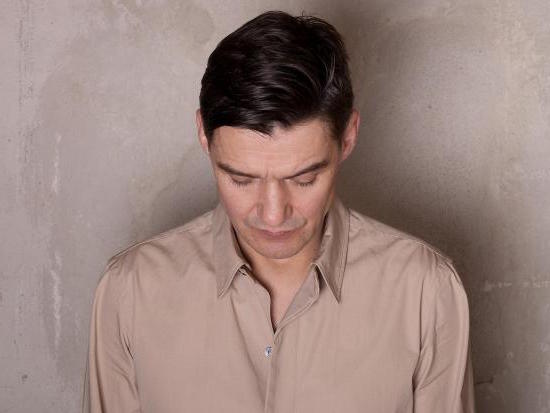For 20 years now, Raster-Noton has pushed the boundaries of electronic music and sound design within it, approaching the form from a non-club perspective. "At the start, we felt like we didn’t particularly belong to any kind of club scene, so we were coming at electronic music a little more from the art world or, let’s say, our interest wasn’t only in the music," Olaf Bender, one third of the team that founded the label almost two decades ago, tells me over Skype from Tbilisi where Raster-Noton is hosting one of a number of European label showcases.
Raster-Noton officially launched in 1999 out of the ashes of Rastermusic, founded by Bender, otherwise known as Byetone, and Frank Bretschneider three years earlier, and sub-label Noton, ran by Carsten Nicolai. It was on the 20′ To 2000 project, a monthly run of CDs released over the course of 1999, featuring music from Wolfgang Voigt, Scanner, Mika Vainio and Byetone himself among others, that the two labels become one. "The dimension of the project was too big for just one label and we realised the concepts were merging more and more so we decided that it didn’t make sense to keep them separated," Bender says. Since then, the label has gone on to release music from William Basinski, Vladislav Delay, Ryuichi Sakamoto, Alva Noto and many more.
The three minds behind the label grew up in Chemnitz, an East German town that, until the Berlin Wall fell, had been known as Karl-Marx-Stadt, and the aftermath of the German Democratic Republic’s termination in 1990 forms a vital part of Raster-Noton’s history. "We are East Germans and there was no record label that we felt we fit in with," says Bender. Taking it upon themselves to express their personalities solely through the music and accompanying visual elements, the team behind the label initially opted to hide information about themselves as a means of allowing only their art to carve out a place for them in the electronic music scene. "The self-definition that we were looking for after the Wall fell made its way into the label’s philosophy so that we could define our own position in the world. We didn’t want to copy any kind of British or American style, even if we loved it, because we wanted our own scene."
It’s life growing up in East Germany that also informs some of Bender’s selections for his Baker’s Dozen, though he’s keen to stress that his list does not rigorously detail his favourite albums of all time. Discovering albums from Brian Eno, Miles Davis and This Mortal Coil while living in the GDR, Bender says that his take on popular music outside of his home territory was skewed by late-night radio shows taking in the more experimentally-minded end of what he calls Western music. "We didn’t recognise that this music was still minority music, so we probably had more access overall to the experimental music than, let’s say, the commercial side of the music business."
It’s perhaps that exposure to alternative popular music that served Bender, Bretschneider and Nicolai well in sculpting a distinct sound on Raster-Noton of sharp, innovative electronic music, taking in IDM and a number of projects rooted in sound art over the last 20 years. In 2016, they continue pushing forward, bringing the White Circle installation to a number of European locations, including Dekmantel, SOU Festival and Sónar. Described by Raster-Noton as an "acoustic-architectural space designed as an audiovisual installation", the project sees Byetone, Kangding Ray, Alva Noto and more present their music in a live setting as a means of showcasing the label’s rich history and bookending its first two decades of operations.
Byetone plays Raster-Noton’s label showcase, alongside Kangding Ray and Grischa Lichtenberger, at EYE in Amsterdam as part of Dekmantel’s series of opening concerts, on August 4; for full details and tickets, head here


